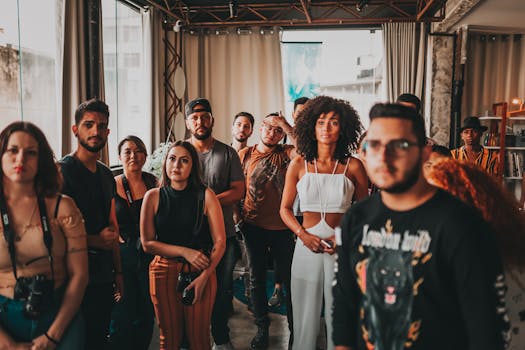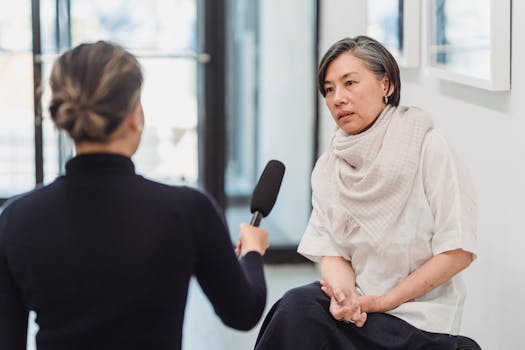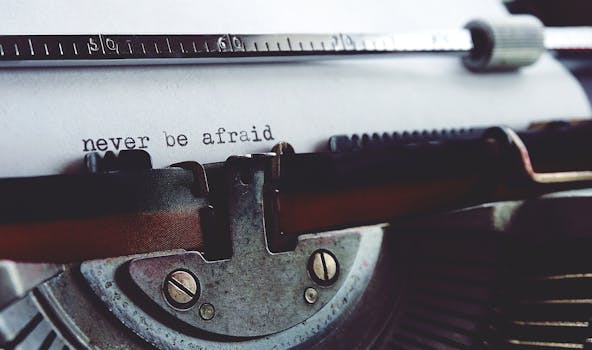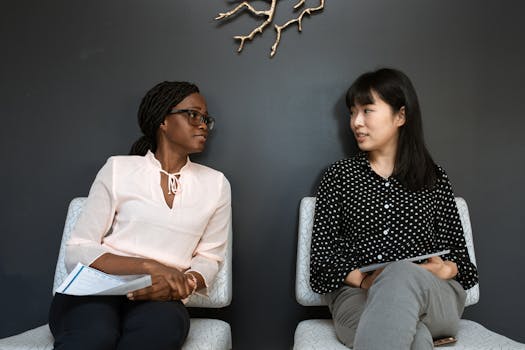Career advice
Dress for Success: Navigating Interview Attire in South Africa’s Industries
Unlock the secrets to professional interview attire tailored by industry in South Africa. Stand out confidently and make the right impression.
Advertisement
A job interview often evokes feelings of excitement and anxiety, and what you wear can significantly impact your first impression on potential employers. Presenting yourself professionally is essential in showcasing your suitability for the role. Thus, understanding the appropriate interview attire specific to your industry can ensure you make the right statement.
In South Africa, various industries have distinct expectations regarding professional attire. From formal business to creative fields, knowing how to dress appropriately empowers candidates, instilling confidence as they approach their interviews. This article will delve into what to wear to an interview based on industry standards, providing valuable insights into maintaining professionalism while feeling comfortable and authentic.
Ultimately, the right outfit can not only foster self-assurance but also align your appearance with the values and culture of the organization. Here’s a comprehensive guide to dressing for success, tailored to different South African industries.
Corporate Sector
In the corporate sector, professionalism and formality are expected. Dressing appropriately can enhance your credibility and portray you as a serious candidate. Traditional attire is often preferred, making a strong impression right from the start.
For men, a well-fitted suit paired with a crisp dress shirt and a conservative tie is ideal. Opt for dark colors like navy or charcoal, as they exude professionalism and authority. Simple, polished shoes complete the look.
Women should consider a tailored blazer with either dress pants or a pencil skirt. Pair this with a modest blouse to avoid being overly flashy. Neutral colors often work best, though a pop of color can be a confident choice.
Accessories should be minimal and professional. A classic watch or simple jewelry can enhance your outfit without drawing too much attention. Strive for a polished look that reflects your seriousness about the opportunity.
Ensure your clothes are clean, pressed, and free from wrinkles. A tidy appearance speaks volumes, suggesting that you care about your presentation and the impression you make.
Creative Industries
For those interviewing in creative industries, such as marketing or design, there is often a bit more room for personal expression. However, it’s crucial to maintain professionalism while showcasing your creativity.
Men might opt for smart-casual attire, such as tailored trousers paired with a stylish button-up shirt. Adding a blazer can elevate the look while still keeping it less formal than corporate attire.
Women can also embrace creativity. A chic dress or a combination of a stylish top with tailored trousers can express individuality while remaining professional. Bright colors or unique patterns are acceptable if they match your personal brand.
Footwear in creative sectors can lean towards stylish yet comfortable options. Smart loafers or fashionable flats work well without compromising professionalism. Be sure to keep your look polished and intentional.
Your attire should reflect who you are while considering the company’s culture. Research the company’s style through social media or their website to align your outfit with their branding.
Tech Industry
The tech industry often embraces a more laid-back dress code, but professionalism should never be sacrificed. Striking the right balance between comfort and corporate attire is key.
Men can opt for smart-casual wear: chinos paired with a collared shirt can make an excellent choice. Teaming this with a casual blazer can add an extra layer of professionalism.
Women may choose tailored pants or a fashionable dress. A casual blazer can enhance the look while maintaining comfort. Aim for neat and smart garments that reflect a modern, yet professional vibe.
Footwear should be smart yet comfortable. Opt for well-maintained sneakers or loafers, ensuring they are appropriate for the setting. Comfort aids in confidence during interviews.
It’s crucial to embody a modern aesthetic while respecting the fundamental aspects of professionalism. The tech industry values innovation; let your outfit reflect your personality and creativity.
Hospitality and Tourism
The hospitality and tourism industry mandates a polished appearance, as employees often interact with clients directly. Therefore, showcasing professionalism through attire is vital.
Men should consider smart casual to semi-formal outfits. A fitted dress shirt paired with slacks creates a polished yet approachable look. Adding a blazer can enhance professionalism.
Women can don a professional dress, tailored trousers with a stylish top, or a smart blazer. Ensure your clothing aligns with a welcoming and friendly demeanor that the industry represents.
Comfortable yet stylish shoes are essential in hospitality given the amount of standing. Ensure your footwear is suitable for movement while maintaining a professional appearance.
Makeup and grooming should reflect cleanliness and professionalism. A neat appearance not only shows respect for yourself but also for those with whom you will be meeting.
Education Sector
When interviewing for positions within the education sector, professionalism is key, though there is often more room for personality compared to corporate jobs. Striking the right balance is essential.
Men can choose smart trousers with a button-up shirt or a lightweight sweater. Consider a blazer if you aim to present a more formal look. Keep colors neutral or pastel tones.
Women might opt for a blouse paired with dress pants or a knee-length skirt. Comfortable shoes are crucial, reflecting the industry’s focus on mobility and approachability.
Accessories should remain simple. A classic watch or understated jewelry enhances professionalism without distracting from your overall look. Keep your style modest and approachable.
Your aim is to convey a combination of professionalism and relatability. Emphasizing your personality through clothing choices will resonate well with future colleagues and students alike.
Healthcare Sector
The healthcare industry often adheres to stricter dress codes. Here, hygiene and a professional appearance are paramount. Attire must be practical while still projecting professionalism.
Men should dress in business casual attire. A collared shirt paired with slacks can be an excellent combination. Wearing a blazer can also elevate the look without being overly formal.
For women, suitable options include tailored trousers with a smart blouse or a chic dress. Scrubs may be acceptable, but wear something modest and professional to the interview.
Footwear is also essential, as comfortable closed-toe shoes are often recommended. Neat and polished footwear enhances your overall appearance and professionalism.
Your grooming should be impeccable. A neat hairstyle and minimal accessories present a capable and responsible candidate, worthy of the trust inherent in healthcare roles.
Conclusion
In summary, dressing for an interview in South Africa requires understanding the nuances of each industry. Your attire should reflect not only professionalism but also align with the specific expectations of your field.
Through careful selection of clothing, accessories, and footwear, candidates can forge a strong first impression, reinforcing their suitability for the position. Confidence is enhanced by the knowledge that you are presenting your best self.
Ultimately, adapting your attire to resonate with the company culture plays a significant role in setting the tone for your interview. Prepare thoughtfully, dress professionally, and approach the opportunity with confidence.
Remember, every industry is unique. By knowing what to wear, you’ll make an impactful impression, paving the way for a successful job interview.
| Industry | Men’s Attire | Women’s Attire |
|---|---|---|
| Corporate | Suit, dress shirt, tie | Blazer, dress pants, blouse |
| Creative | Smart-casual trousers, button-up | Chic dress, tailored trousers |
| Tech | Smart-casual wear, collared shirt | Fashionable dress, tailored pants |
| Hospitality | Dress shirt with slacks | Professional dress, tailored trousers |
| Education | Smart trousers, button-up shirt | Blouse with dress pants, skirt |
| Healthcare | Business casual attire | Tailored trousers, blouse, chic dress |
- Research the company’s dress code before the interview.
- Choose colors that reflect professionalism and confidence.
- Aim for a neat, polished appearance in grooming.
- Ensure your clothing is comfortable to enable confidence during the interview.
- Remember that accessories should be minimal and professional.





